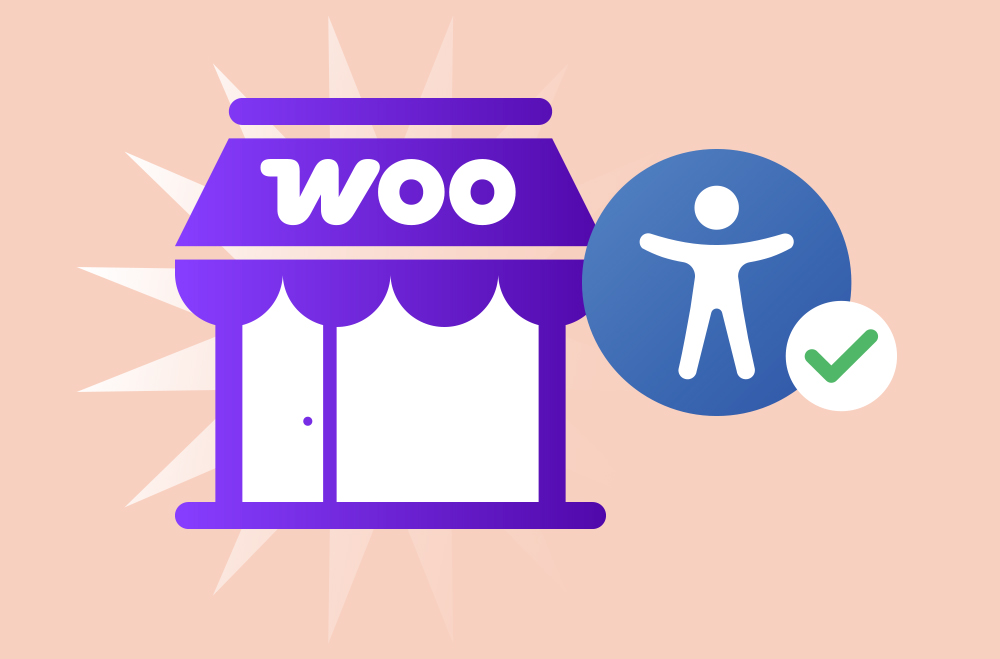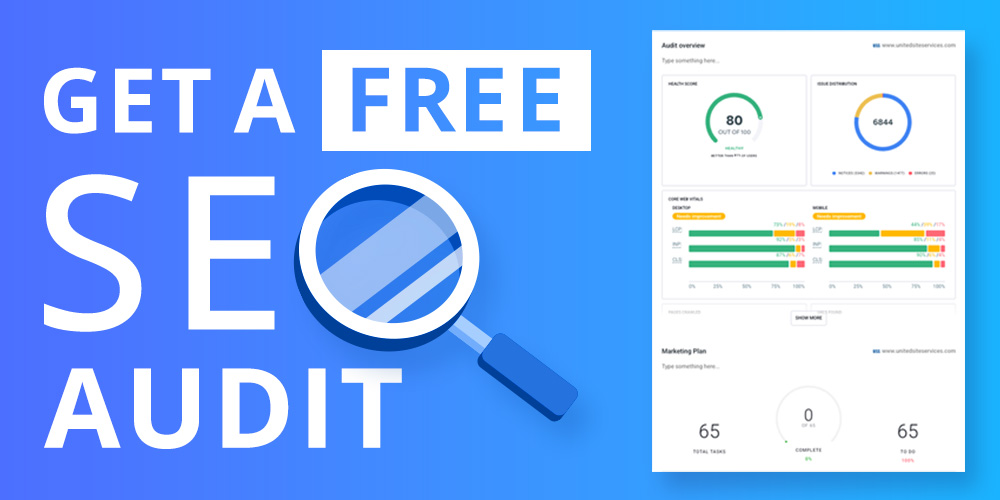


In 2025, WooCommerce store owners are expected to do more than sell products; they must create inclusive, transparent, and legally compliant shopping experiences. Accessibility (ADA) and privacy (GDPR) are no longer optional add-ons; they’re essential to a modern eCommerce strategy. By ensuring your store is usable by people with disabilities and respectful of data rights, you meet global legal standards and foster customer trust and loyalty.
This article explores what ADA and GDPR compliance mean for WooCommerce and why they matter now more than ever. You’ll learn the practical steps to make your store accessible, how to handle customer data lawfully, and which tools can simplify the process. Whether you’re just getting started or aiming to refine your compliance strategy, these insights will help future-proof your store, minimize legal risk, and reinforce your brand’s commitment to ethics, privacy, and inclusivity in an increasingly competitive online marketplace.
From 2022 to 2025, WooCommerce stores will steadily increase their ADA and GDPR compliance. ADA compliance will grow from 35% to 85%, while GDPR compliance will climb faster from 40% to 92%. The data reflects increasing awareness and adoption of accessibility and privacy standards across global e-commerce.
The Americans with Disabilities Act (ADA) ensures that all people, including those with disabilities, have equal access to goods and services, including those provided online. For WooCommerce store owners, this translates into making your website functional for users who rely on assistive technologies such as screen readers, keyboard navigation, or alternative input devices. Accessibility isn’t just a legal requirement; it’s a business advantage that helps you reach more potential customers and fosters brand trust.
Inaccessible sites may face lawsuits, customer backlash, and missed opportunities. But with proactive ADA compliance, you demonstrate inclusivity, improve overall user experience, and expand your market reach. Even minor adjustments, like adding alt text or increasing contrast, can make a big difference in someone’s shopping experience. Prioritizing accessibility is not just about following the law; it’s about doing what’s right for your users.
The General Data Protection Regulation (GDPR) is a comprehensive privacy law introduced by the European Union to protect the personal data of its citizens. Even if your WooCommerce store operates outside the EU, you are legally obligated to comply if you collect, store, or process data from EU residents. This includes customer names, email addresses, phone numbers, IP addresses, and payment details. GDPR compliance is not optional; it is a critical step in protecting customer privacy and maintaining business credibility in global commerce.
Beyond legal obligations, GDPR compliance helps you build customer trust by being transparent about handling data. Shoppers are more likely to buy from brands that value their privacy. Ensuring compliance also prepares your store for similar regulations in other countries, like the CCPA in California. With privacy becoming a growing global concern, aligning your WooCommerce site with GDPR principles demonstrates ethical leadership and future readiness.
Ensuring ADA compliance means making your WooCommerce store usable for everyone, including people with disabilities. This involves more than just visual adjustments; it’s about creating an inclusive experience for users who rely on screen readers, keyboard navigation, or other assistive technologies. ADA compliance enhances usability for all visitors and can increase your customer base while reducing legal risks.
To meet accessibility standards, WooCommerce site owners should adopt design and development practices aligning with WCAG 2.1 AA guidelines. These adjustments help you comply with ADA and contribute to a better user experience, engagement, and conversion.
Creating an ADA-compliant WooCommerce store is not a one-time fix; it requires continuous attention to design and functionality. A compliant website improves accessibility for users with disabilities and enhances everyone's overall user experience. Screen reader compatibility, keyboard navigation, and properly labeled content are essential for building an inclusive and legally sound online store.
Use the following checklist to assess and improve your WooCommerce store’s accessibility standards. These practices help you meet ADA requirements while demonstrating a commitment to inclusivity:
The General Data Protection Regulation (GDPR) sets strict rules on how businesses collect, store, and process personal data from individuals within the EU. For WooCommerce stores, compliance means being fully transparent with customers about their data, obtaining explicit consent, and ensuring users can easily manage their information. These rules apply even if your store is based outside the EU but serves EU customers, so ignorance is not a defense.
To comply with GDPR, your WooCommerce store must be built with privacy in mind from the start. That includes implementing secure data handling processes, updating policies, and ensuring all user interactions respect data rights. Compliance protects your store from fines and builds customer credibility and trust.
Core GDPR requirements for WooCommerce include:
Achieving GDPR compliance isn’t a one-time task; it’s an ongoing responsibility that requires clear policies, secure infrastructure, and customer-centric practices. Your WooCommerce store must be equipped to provide transparency, manage consent effectively, and honor data access or deletion requests. A comprehensive approach to compliance protects customer data and strengthens your brand’s credibility in a privacy-conscious market.
Regularly reviewing your store's GDPR readiness ensures you adapt to changing laws and user expectations. Documenting every step, from data encryption to customer consent, demonstrates due diligence and shows your customers you take their rights seriously.
Essential items in your GDPR compliance checklist include:
Implementing ADA and GDPR compliance in your WooCommerce store doesn’t have to be overwhelming. Reliable plugins and built-in tools can help you automate much of the process while ensuring your store meets accessibility and privacy requirements. These solutions streamline complex tasks and offer ongoing support to stay compliant as standards evolve.
Recommended tools for implementation include:
GDPR Cookie Consent by WebToffee
The WebToffee GDPR Cookie Consent WordPress plugin empowers websites to achieve cookie compliance effortlessly. It offers a customizable banner, GeoIP targeting, automatic cookie scanning and categorization, granular opt‑in, Google Consent Mode v2 support, multilingual capability, and secure consent logging, all stored locally. It is ideal for GDPR, CCPA, LGPD, CNIL, and more.
Accessibility Widget by WP Accessibility Helper (WAH)
The AccessYes Accessibility Widget plugin by CookieYes equips WordPress sites with a lightweight, user‑friendly accessibility toolbar. Visitors can adjust font size, contrast modes, spacing, cursor size, and pause animations. It supports WCAG, ADA, and EAA guidelines, offers multilingual support, and doesn’t collect user data, which is ideal for enhancing inclusivity.
The WP User Frontend plugin empowers WordPress sites with a full-featured frontend experience. It enables users to submit posts, build profiles, register, manage subscriptions, and edit content via customizable drag‑and‑drop forms and dashboards. Features include guest posting, WooCommerce, custom‑post‑type support, role-based access control, and front-end notifications.
The WP Accessibility plugin by Joe Dolson addresses common WordPress themes and core accessibility barriers. It adds skip links, language/direction attributes, keyboard focus outlines, long image descriptions, alt‑text enforcement, and form labels, and removes redundant link attributes. Additionally, it provides color-contrast testing and CSS diagnostics, enhancing usability with minimal setup.
CookieYes | GDPR Cookie Consent
The CookieYes platform simplifies global cookie compliance with an intuitive, customizable cookie banner, automatic cookie scanning and blocking, monthly re-scans, Google Consent Mode integration, and granular preference management. It supports GDPR, CCPA/CPRA, LGPD, CNIL, and more, offering centralized consent logging and policy generation for seamless regulatory adherence.
Maintaining ADA and GDPR compliance is not a one-time task; it’s an ongoing commitment. Your WooCommerce store must evolve alongside legal updates, plugin changes, and user expectations. By creating a culture of accessibility and privacy awareness within your organization, you ensure compliance becomes part of your long-term strategy rather than a reactive obligation. Regular internal reviews and third-party audits can help you catch issues early and reinforce your dedication to customer trust and inclusivity.
Additionally, it’s crucial to document all your compliance-related activities and decisions. This includes storing consent logs, accessibility reports, policy update records, and user feedback. Transparent records protect your business during legal scrutiny and demonstrate your good-faith efforts to regulators and customers.
Key actions to support ongoing compliance:
Regular testing and auditing ensure your WooCommerce store complies with ADA and GDPR. Compliance is not a one-time setup; it’s a continuous process that evolves as laws, technology, and customer expectations change. Conducting periodic evaluations helps identify gaps in accessibility and data privacy before they become costly issues. It also reinforces your store’s commitment to ethical, inclusive, and transparent online commerce.
A robust compliance audit should combine automated tools, manual testing, and user feedback to cover all bases. Beyond basic checks, it’s essential to document findings and track improvements over time to demonstrate accountability and improvement.
Consider implementing the following testing and audit strategies:
Sustaining compliance isn’t just about initial setup; it’s about long-term vigilance and adaptability. As legal standards evolve and new technologies emerge, WooCommerce store owners must keep pace with best practices to ensure their websites remain accessible and privacy-compliant. This means embedding compliance into your operational processes and treating it as a regular part of site maintenance, just like security updates or SEO improvements.
To stay compliant year-round, adopt a routine that includes internal checkups, plugin updates, and team accountability. A proactive approach reduces legal risk and enhances customer experience. Your ongoing checklist should consist of:
In today’s digital economy, ADA and GDPR compliance go far beyond avoiding legal consequences; they reflect a WooCommerce store's values. Ensuring your site is accessible to all users and handles personal data responsibly shows that your brand cares about inclusion, transparency, and trust. These principles are no longer optional in 2025 but are integral to long-term business growth and consumer loyalty. Accessibility opens your store to millions of users with disabilities, while privacy compliance builds customer confidence in how you handle their data.
Taking a proactive stance on compliance isn’t just good ethics; it’s also innovative business. By investing in ongoing audits, using reliable tools, and staying up to date with evolving legal frameworks, you’re future-proofing your WooCommerce store. For expert guidance on navigating the complex landscape of ADA compliance, we highly recommend reading Bright Vessel’s ADA Website Compliance Guide for 2025. This resource offers tailored solutions, actionable steps, and practical tips to help you meet your legal obligations while building a more inclusive and trustworthy online store.

"*" indicates required fields

"*" indicates required fields

"*" indicates required fields